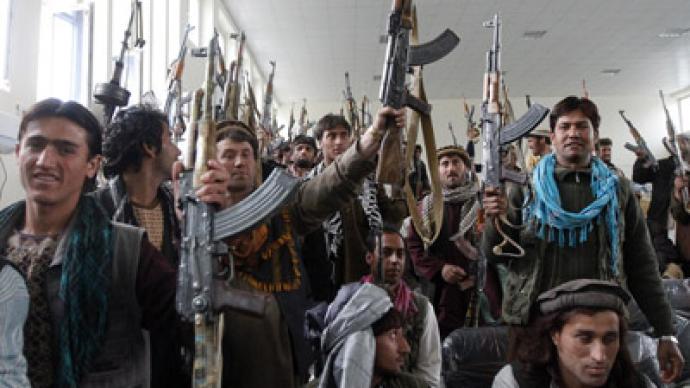US gives up on peace deal with the Taliban

Nearly eleven years to the day after US troops went to Afghanistan to begin what has become the United States’ longest running war, senior officials on the ground say America’s chance of achieving a peaceful end anytime soon seems impossible.
Even though the administration of US President Barack Obama has made resolving the war in Afghanistan an obligation since the early days on the campaign trail, the White House’s approach at how exactly to close the curtain on that operation has been altered relentlessly in the years since. Now according to sources speaking out to the New York Times this week, the next action taken by America may very well be throwing in the towel as the US considers once and for all walking away.“I don’t see it happening in the next couple years,” a senior coalition officer speaking on condition of anonymity explains the odds of a peaceful outcome to the paper.“It’s a very resilient enemy, and I’m not going to tell you it’s not,” the officer says. “It will be a constant battle, and it will be for years.”That source and others suggest to the media that the time might finally be right to roll out the last of America’s troops in Afghanistan, a decision that comes but only days after the Pentagon confirmed that the 33,000 troops sent overseas in a “surge” at the start of the Obama administration have finally finished their stay. The track record that comes with America’s decade-plus operation there isn’t necessarily one worth boasting about, though: at the same time, the Associated Press reports that the death toll of US troops killed overseas has recently hit the 2,000 mark, a grim statistics that other outlets had already suggested America incurred even earlier in 2012."The tally is modest by the standards of war historically, but every fatality is a tragedy and 11 years is too long," the Brookings Institution’s Michael O'Hanlon said to the AP of the ever-growing death count. In an attempt to ease out of Afghanistan in time for an earlier-imposed 2014 deadline, the Obama administration has made repeated claims during his tenure that the White House insists would expedite the end to the war. Last year, the White House asked Taliban leaders to erect an embassy-like establishment in the country of Qatar to begin diplomatic peace talks with other nations “free from the threat or harassment or arrest,” as the New York Times explained, and another deal was brought to the table that would have involved the exchange of five insurgents held by the US at the Guantanamo Bay military prison in exchange for a single American soldier, Sgt. Bowe Bergdahl. Neither of these efforts materialized past preliminary discussions, though, and the next maneuver for the American military is looking more and more likely to involve letting the Afghan government handle negations with the Taliban themselves. “Peace is not a subject any longer,” Syed Muhammad Akbar Agha, a former Taliban military commander who lives in Kabul, tells the Times. According to Mr. Agha, some insurgents were willing to work with the Obama administration’s ideas to end the way through negotiations, but all sides of the discussion could be blamed for what is increasingly looking like a total failure: the Taliban, says Agha, “didn’t do a good [Information Operations] campaign to sell it to their people”; Karzai’s cabinet was “backpedaling hard.”Operation Enduring Freedom will turn 11 years old on October 7, 2012. Two months after the decade-long milestone was marked last year, US Defense Secretary Leon Panetta said, “My hope is that we maintain a long-term relationship with Afghanistan, that we don’t just simply pick up and get out.”“We spilled too much blood here,” Panetta said.














